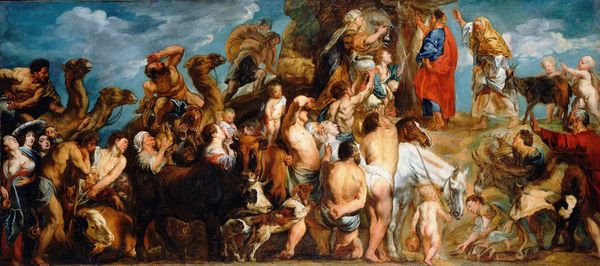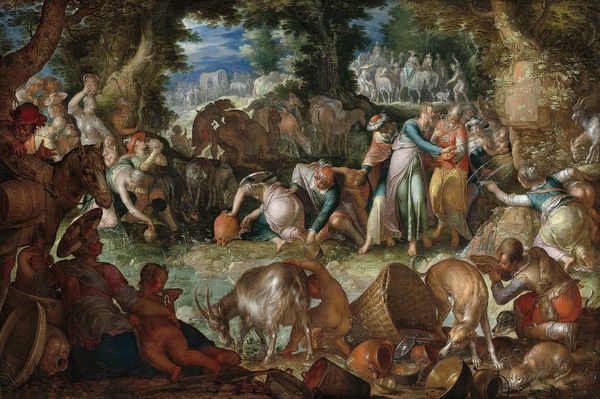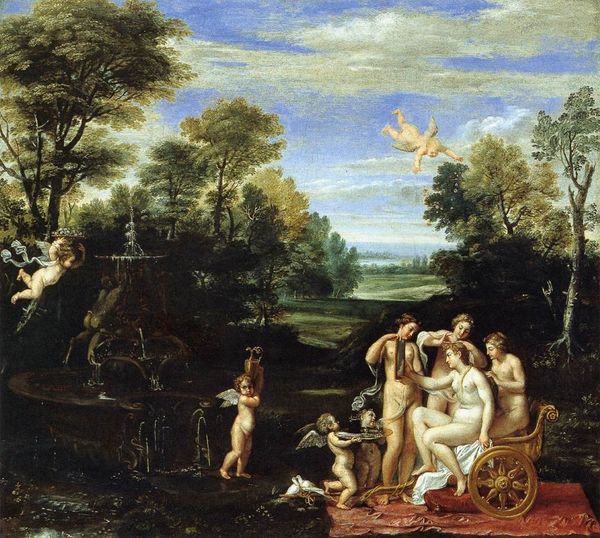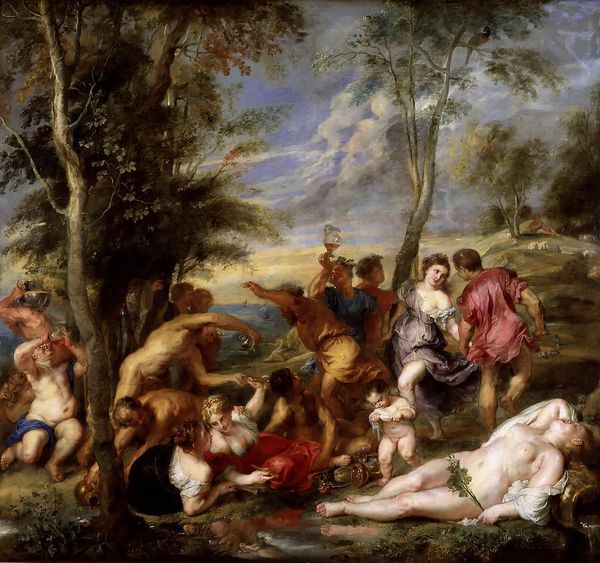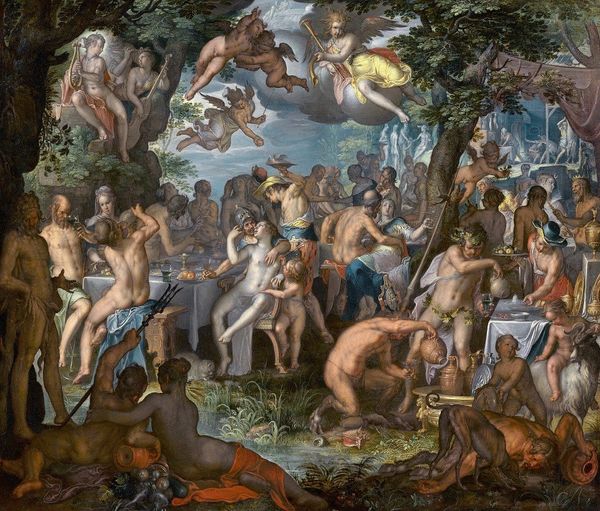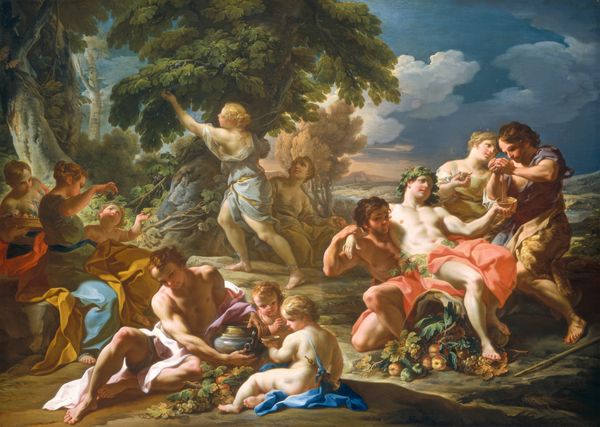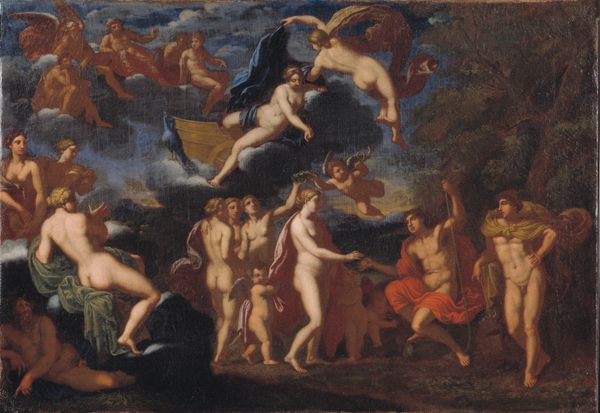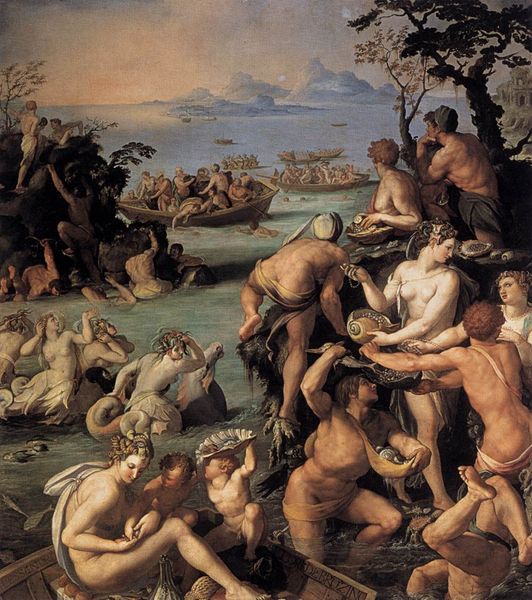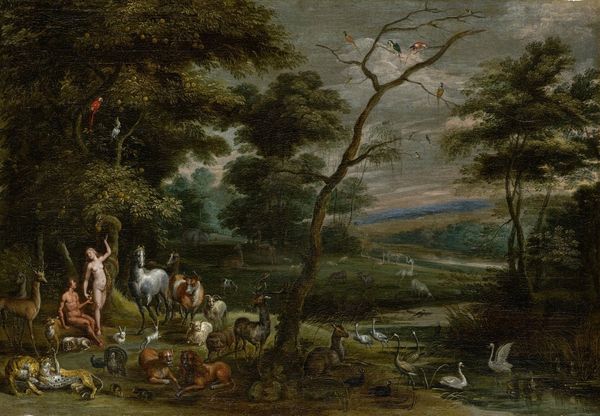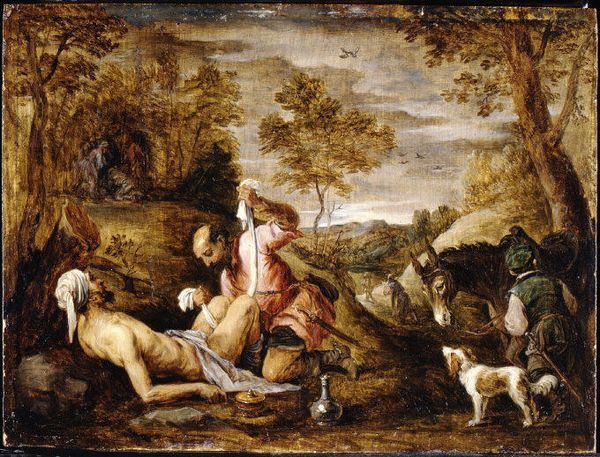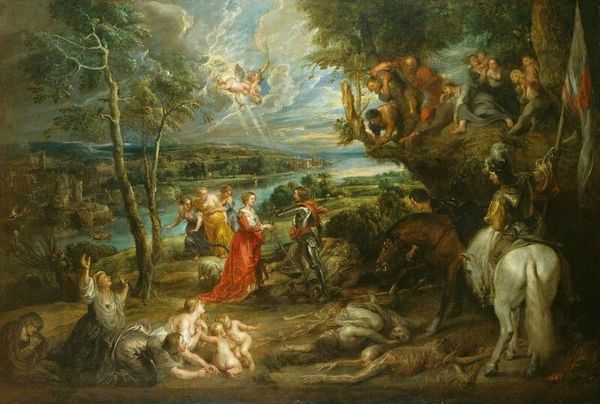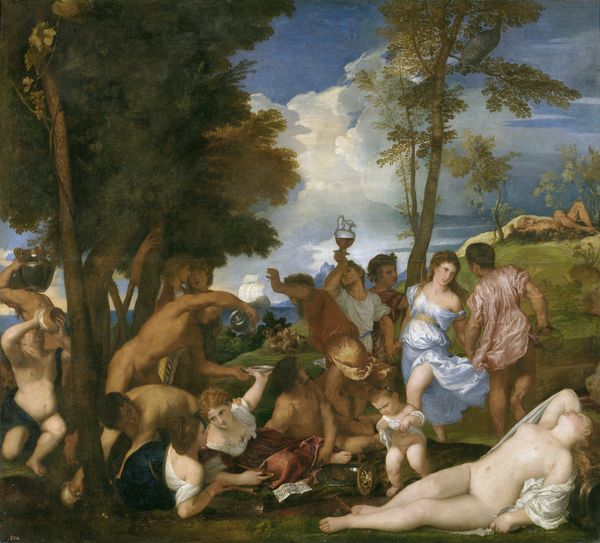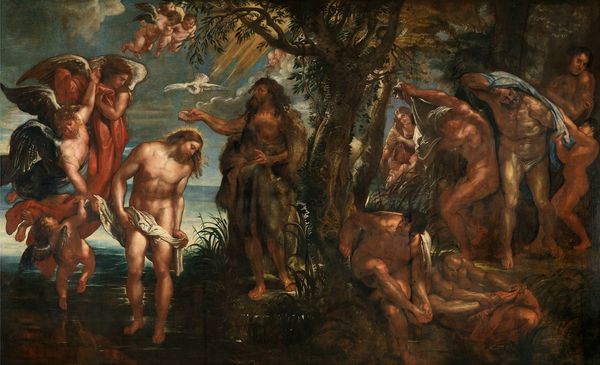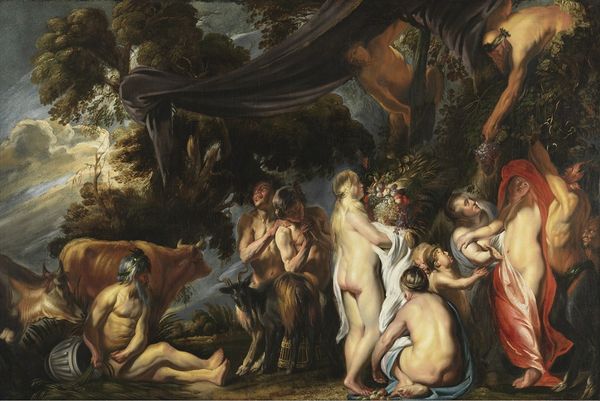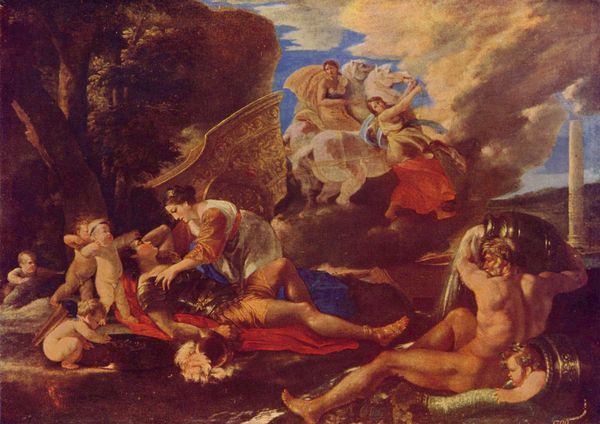
oil-paint
#
baroque
#
oil-paint
#
landscape
#
figuration
#
oil painting
#
cupid
#
mythology
#
nude
Dimensions: 172.1 x 190 cm
Copyright: Public domain
Editor: Jordaens’s "The Abduction of Europa," painted in 1643, features an idyllic scene rendered in oil on canvas. It strikes me as a dynamic composition, the figures seem caught between pleasure and fear. What kind of symbols or meanings do you see embedded in this painting? Curator: Look at Europa's garland. This isn't just decoration; it echoes ancient coronation rituals. This floral crown acts as a harbinger of her destiny. How does Jordaens hint at the psychological tension inherent in the myth? Is she a victim or a willing participant? Editor: I see. The way she is glancing back, she doesn’t look exactly afraid. So the bull is not just an animal but represents… what? Curator: Zeus in disguise. The bull is a symbol laden with meaning: virility, divine power, but also brute force. Notice how Cupid oversees the scene, a small figure directing the flow of events with calculated detachment. This contrasts with the lush, sensual figures. Editor: That’s an interesting point, I didn’t notice. So is it right to say that those figures, along with Cupid, become part of the symbol? They seem to know, even anticipate, what’s happening. Curator: Exactly! They reflect cultural memory and continuity through the depiction of recurring visual symbols. Even the landscape isn’t mere background; it represents fertile lands she will help to establish, pregnant with potential. How do all these elements weave together? Editor: Seeing Cupid’s presence certainly changes the story. He anticipates and directs our eyes as well, making us, as the viewers, complicit. Thanks for sharing the wealth of visual symbols.
Comments
No comments
Be the first to comment and join the conversation on the ultimate creative platform.
